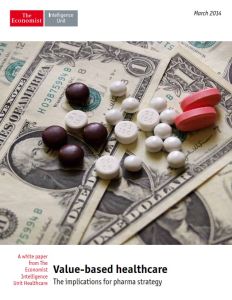
Read or listen offline
Amazon KindleRecommendation
The system of how medical care providers get reimbursed has undergone – and is continuing to undergo – tremendous change. Under the umbrella of “value-based health care” (VBH), the quality of patients’ case results determines the payments to medical providers and health care suppliers – rather than the quantity of tests, procedures or medications a patient receives. Experts at the Economist Intelligence Unit succinctly describe how these changes will affect the big pharmaceutical companies that create and market medications to millions of people. Their report offers compelling examples of how these firms can cope with and benefit from VBH. getAbstract recommends this illuminating report on the shake-up in health care to pharma professionals, health care providers and suppliers, as well as entrepreneurs and investors in the medical arena.
Summary
About the Author
The Economist Intelligence Unit Healthcare provides information to aid health care providers, suppliers, payers and others in developing research- and evidence-based business plans.




















































































































Comment on this summary or Diskussion beginnen